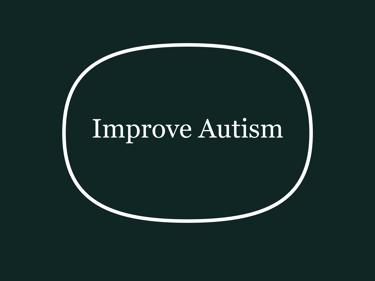Long-term benefit of Microbiota Transfer Therapy on autism symptoms and gut microbiota
Authors:
Kang, D.W., Adams, J.B., Coleman, D.M., Pollard, E.L., Maldonado, J., McDonough-Means, S., Caporaso, J.G. and Krajmalnik-Brown, R.
https://www.nature.com/articles/s41598-019-42183-0
doi: 10.1038/s41598-019-42183-0
Study Overview
This study relates to the one above in which it assessed the long-term effects of MTT, a treatment that included a 10-week protocol involving antibiotics (vancomycin), a bowel cleanse, a stomach-acid suppressant, and fecal microbiota transplant (FMT). The initial trial showed improvements in GI symptoms, autism-related behaviors, and gut microbiota, and this follow-up evaluated whether these benefits persisted two years after treatment ended.
Summary of study
The study found that MTT led to significant and sustained improvements in children with ASD and GI issues:
GI Symptoms: Reduced abdominal pain, indigestion, diarrhea, and constipation, maintained for two years with some further improvement.
Autism-Related Symptoms: Enhanced social responsiveness, reduced autism severity, fewer problem behaviors, and improved adaptive behaviors, with benefits persisting and increasing over two years.
Gut Microbiota: Increased bacterial diversity and beneficial bacteria, stable for two years.
These findings suggest MTT may offer long-term benefits, though the study’s open-label design and small sample size (18 participants) indicate the need for a double-blind, placebo-controlled trial to confirm the results.
Key Findings
1. Gastrointestinal (GI) Symptom Improvements
Measurement Tool: Gastrointestinal Symptom Rating Scale (GSRS).
Findings:
At the end of the initial 10-week treatment, GI symptoms significantly decreased.
Two years after treatment stopped, most of these improvements were maintained.
In some cases, GI symptoms showed further improvement compared to the end of the initial treatment.
Type of Symptom Improvement:
Reduced abdominal pain.
Decreased indigestion.
Less diarrhea.
Improved constipation.
2. Autism-Related Symptom Improvements
Measurement Tools:
Childhood Autism Rating Scale (CARS) for autism severity.
Social Responsiveness Scale (SRS) for social responsiveness.
Aberrant Behavior Checklist (ABC) for problem behaviors.
Vineland Adaptive Behavior Scale (VABS) for developmental progress.
Parent Global Impressions-III (PGI-III) for parental perceptions.
Findings:
At the end of the initial treatment, autism-related symptoms improved significantly.
Two years later, these improvements not only persisted but continued to improve further.
CARS: Autism severity scores decreased significantly, with many participants shifting from "severe" to "mild/moderate" categories.
SRS: Social responsiveness improved, with some participants moving out of the clinical ASD range.
ABC: Problem behaviors reduced by 35% compared to baseline (versus 24% at the end of treatment).
VABS: Developmental age increased by 2.5 years over the two-year period, faster than typical for children with ASD.
PGI-III: Parental perceptions of improvement remained stable from the end of treatment.
Type of Symptom Improvement:
Improved social communication and responsiveness (SRS).
Reduced autism severity (CARS).
Fewer problem behaviors (e.g., irritability, lethargy, stereotypy, hyperactivity) (ABC).
Enhanced adaptive behaviors (e.g., communication, daily living skills, socialization) (VABS).
3. Gut Microbiota Changes
Measurement: Stool sample analysis for bacterial composition and diversity.
Findings:
Bacterial diversity increased significantly by the end of treatment and remained elevated two years later.
Relative abundances of beneficial bacteria, such as Bifidobacteria and Prevotella, increased and were sustained at the two-year follow-up.
These changes indicate a long-lasting shift toward a healthier gut microbiome.
Type of Improvement:
Increased bacterial diversity.
Higher levels of beneficial bacteria (Bifidobacteria and Prevotella).
Duration of Improvements
Initial Treatment Duration: The MTT protocol lasted 10 weeks.
Follow-Up Assessment: Conducted two years after treatment ended.
Persistence of Improvements:
GI Symptoms: Improvements were largely maintained for two years, with some participants showing further reductions in symptoms.
Autism-Related Symptoms: Initial improvements were sustained and continued to progress over the two-year period.
Gut Microbiota: Increased diversity and beneficial bacteria levels persisted two years post-treatment.
Thus, the improvements lasted at least two years after the treatment ended, with autism-related symptoms showing continued progress beyond the initial gains.


